Urban Studies Certificate
Urban studies is an undergraduate interdisciplinary certificate program that is open to all students. It is designed to provide you with an education in the analysis of urban patterns, processes, and issues; and to provide you with an understanding of the economic, social, cultural, political and spatial phenomena of urban areas, and how these various aspects of urban areas developed. The certificate offers you the opportunity to supplement your studies, with a focus on the problems and potentials of the urban world; and provides interdisciplinary training in order to produce a comprehensive and coherent understanding of urban life.
Learning Goals
Learning goals are
- Gain knowledge of the dynamics of city patterns and urban life.
- Learn to engage in reasoned response to changing urban problems and policies.
- Develop professional and civic involvement skills to improve the quality of urban life.
- Demonstrate knowledge of applied research practices and apply them to help the local communities.
Required Courses
Required Core Course (3 credits)
Urban Geography | GEOG 360 | 3 credits
Focuses on characteristics of urban regions. Analysis of the factors that determine urban development as well as patterns within urban areas. Transportation and housing issues. Ethnic neighborhoods and urban government. Urban planning models and practices are introduced to study urban problems like poverty, congestion, crime and infrastructure.
Urbanism and Urbanization | SOCA 355 | 3 credits
Examines the effects of major historical, economic, political, and architectural trends on class compositions of cities.
To earn the urban studies certificate, student must complete the certificate courses with a GPA of 2.5 or better.
Elective Courses
Select two elective courses from the selection below (6 credits)
Introduction to Population Studies | SOCA 358 | 3 credits
Elucidates population size, composition and processes of migration, including social and economic determinants of demographic changes and their effects upon social organization.
Economics of Urban Problems | ECON 304 | 3 credits
Applies tools of economic analysis to selected urban problems including housing, urban renewal and development, transportation, pollution, poverty, crime, and the financing of urban services
Political Geography | GEOG 340 | 3 credits
Elucidates theoretical perspectives on deviant behavior which traces the development of how deviance is defined, explained and controlled.
Geography of Transportation | GEOG 375 | 3 credits
The significance of transportation within the modern world. Geographic analysis of transportation systems with emphasis on networks, costs, new technologies, commodity flows, traffic patterns, impacts on development, the different modes, and transportation problems.
Mayhem and the Metropolis | HIST 325 | 3 credits
Investigates the health status of populations and the social, political, economic, and environmental factors that influence health, disease, and illness in populations. Focuses on historical patterns, current challenges, and alternatives for future change.
The Urbanization of the United States | HIST 341 | 3 credits
Analyzes the evolution of urban places and cities in the United States from a network of tiny colonial outposts to a complex system of consolidated metropolitan statistical areas, as well as the impact that the historical process of urbanization has had upon other aspects of national development.
Institutional Racism in America | SOCA 323 | 3 credits
Examines racism within various institutions such as public government bodies, private businesses, and universities. Outlines political, social, ecological and economic effects of racism.
Migration and Immigration | SOCA 362 | 3 credits
Examines migration and immigration as major processes of change in the United States and internationally, focusing on communities, social networks, and work activities of migrants.
Formal Organization | SOCA 373 | 3 credits
Examines fundamental issues concerning social organization, includes theories and research methods for analyzing organizations; individuals and groups in organizations; organizational structure; communication, leadership, and decision-making; and organizational change and effectiveness.
Society and Environment | SOCA 379 | 3 credits
Examines environmental philosophies, movements, attitudes, and issues from a sociological perspective. Considers a diverse, multicultural array of approaches.
To earn the urban studies certificate, student must complete the certificate courses with a GPA of 2.5 or better.
Practicum
A practicum is required for this certificate.
Students must take one course that fulfills a hands-on practical experience, such as an internship or independent study in any related department. Approval of the practicum experience by the Program Director is necessary.
Possible options include
Internship in Sociology | SOCA 492 | 3 credits
Provides opportunity for community work experience with emphasis on job preparation skills, i.e., resume writing, networking, interviewing.
Anthropology Fieldwork | ANTH 494 | 3 credits
Practical application of geographic concepts, methods, and technologies. By working in planning agencies, GIS departments, environmental organizations, other private or public units, students gain real-world experience.
Internship in Geography | GEOG 494 | 3 credits
Practical application of geographic concepts, methods, and technologies. By working in planning agencies, GIS departments, environmental organizations, other private or public units, students gain real-world experience.
Poverty in American History | HIST 336 | 3 credits
Explores the problem of poverty in American history, emphasizing the experiences of poor Americans, the evolution of explanations of poverty, and how Americans have confronted the issue.
Other practicum courses besides those listed above might fulfill this requirement. Courses that include an experiential project concerning urban issues will be considered. Approval is needed.
To earn the urban studies certificate, student must complete the certificate courses with a GPA of 2.5 or better.
PROGRAM CONTACT INFO
Laura Khoury | 262-595-2590 | khoury@uwp.edu




